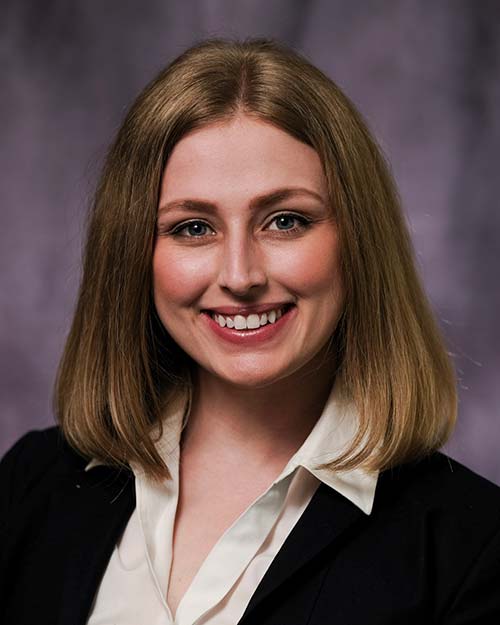2020 TCEP Board of Directors Nominee
1. Please provide us with your Medical School and graduation date. Also include your current positions held with a brief description of your duties. My name is Kayla Nussbaum and I am a third year at Dell Medical School at the University of Texas at Austin. My graduation is planned for May 2021. I am the current President of the Emergency Medicine Interest Group (EMIG). During my term, I have focused on increasing involvement between the medical students, residents, and faculty by hosting a monthly Speaker and Skills Series. Additionally, I am working to build a pipeline program with the EMT Certification students at underserved high schools. During my first year of medical school, I signed up to be a Co-Director for Health Career Collaborative. It is a national pipeline program in which medical students teach and mentor high school students interested in health careers. These students are traditionally undereprestented in medicine, and many will be first generation college students. This is now my third year teaching health science students and I am proud of their growth and future plans. I am also serving as Co-Policy Chair for Dell’s branch of TMA. In this role, I both write policy and help others write and edit their own resolutions. My current resolutions include topics such as educating physicians about the rights of undocumented immigrants and how disclosing mental health disorders may discourage medical providers from seeking help to protect their licensure. Additionally, I am working on a resolution for AMA that promotes stricter legislation to decrease pharmaceutical stock buybacks and subsequent drug cost increase. Because of Dell’s curriculum, I completed all of my core rotations as an MS2. During my third year, I have been enrolled in a Master’s of Health Care Transformation degree. This program focuses on the implementation of value-based care. During this, I have learned that financial restructuring and systems change is highly dependent on strong advocacy and policy. 2. Tell us about your involvement in TCEP. My involvement with TCEP has been centered on the events hosted through EMIG, such as Lone Star Survival and Texas Two Step CPR. This was the first year that Dell Med has hosted Lone Star Survival, and I thoroughly enjoyed leading the logistics and execution of the event as City Chair. We are hoping to continue to involve the large student population at The University of Texas with future events. Through EMIG, I am also working to build relationships with our residents and faculty who are highly involved in TCEP and ACEP. 3. Convey to us your goals as a Director and what you see as the pressing issues facing Emergency Physicians in the next three years. As Medical Student Director, my goal would be to emphasize the importance of learning about advocacy and policy during medical school. While USMLE and clerkships can seem all-consuming, there is a much bigger picture. Through my experience with TMA, I have learned the significance of building trusting, open relationships with legislators. Much like I often do not understand their legal jargon, the world of medicine is unfamiliar. However, we can and should work together to make Texas a better place to receive healthcare. I think it is essential to learn how to navigate these relationships – and the earlier the better! Starting in medical school can help set up successful future endeavors in residency and beyond. As financial burdens related to healthcare continue to grow, so will the number of uninsured and underinsured. In our current systems model, without insurance patients are left to seek care in its most expensive form – the Emergency Department. Not only will this further drive up costs, but it also constrains limited resources, throughput, and capacity for treatment. The current infrastructure of admitting services are worrisome, because pushback on admissions will only overcrowd the ED more. In light of the upcoming 2020 election, I also think that current and possibly continuing rhetoric regarding immigration may discourage undocumented patients from interacting with preventative and primary health care. Untreated chronic conditions can lead to very serious emergencies, further increasing the patient volume utilizing the ED, without corresponding increased admission capabalities. Social determinants of health should be considered in looking to better the system for the most vulnerable patients. 4. Please provide a brief description of family, community and professional activities, and hobbies. I recently celebrated my second wedding anniversary to my husband, James. We met in undergrad, and he is currently working as an ICU RN. We have two rescue dogs, Zoey and Zelda. We are also self-proclaimed nerds and spend much of our limited free time playing video games together – hence the name “Zelda” for our most recently adopted pup. I also enjoy fitness, cooking, reading fiction and non-fiction, and binge-listening to podcasts. |

